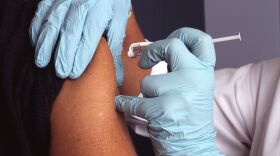On paper, the COVID-19 outbreak at Michigan State University, the largest reported at any university in the state thus far, with 1,395 cases, appears to be getting better, fast. Very fast.
Initially, cases skyrocketed as students returned to the East Lansing area this fall, despite a last-minute decision by the university to move to remote learning. But the virus spread so rapidly that by September 12, the county health department “strongly recommended” all students quarantine.
“Ingham County has the highest COVID-19 risk in the entire state of Michigan,” county health officer Linda Vail said in a September 17 statement, announcing a total of 39 large group student houses were being placed under mandatory quarantine.
“We are truly in a crisis situation, especially in East Lansing. We must do all we can to contain the outbreak.”
But suddenly, things changed. Reports of new cases have plummeted by 90% in just the last two weeks: 635 new cases were reported by the health department the week of September 7. The next week, it was down to just 283. And for all of last week, only 71 new MSU cases were reported.

That’s just not how COVID works, Vail says.
“I've been in this business for a long time, and I was an infectious disease researcher and microbiologist before that. And I can tell you that this is a very strange looking epidemiologic curve, given what we know happened [in terms of how widespread the virus was],” Vail says.
Even the best public health department in the world couldn’t get cases down this quickly, she says. What’s more likely, Vail says, is that fewer members of the MSU community are getting tested, which would mean that the virus is still spreading, and leaving public health officials blind to its path.
“Given what we know about this disease, and how long it takes people to transmit it to others and incubation periods…[it’s] all leading to this notion that there have been a lot of choices to just not go get tested.”
If students are in fact refraining from getting tested, Vail can only speculate as to why. One possibility, she says, is the chilling effect from a widely-publicized crackdown on large social gatherings, and mandatory quarantines the health department placed on dozens of group houses.
Testing on MSU campus drops steeply
Meanwhile, on campus, the number of tests being performed at MSU has been cut by more than half, down from 1,015 tests the week of September 14 to just 486 last week. As of Tuesday, only 40 tests had been conducted so far this week. If that rate doesn’t increase, MSU could see a mere 140 tests performed this week.

“As we're looking at our information on the clinical tests that we're administering on campus, we're seeing a decline in testing,” says MSU spokesman Dan Olsen. But he says there could be several reasons.
“I don't have data that supports that students are trying to circumvent the system and just not getting tested,” Olsen says. “...It could be that...the mandatory quarantine and the recommended quarantines that were put in place by the health department are having an impact. We're cautiously optimistic about that.
“It could be that students are asymptomatic, and so they're not realizing that they may have been a close contact of somebody [with COVID] or have been at risk in some way, shape or form. And they aren't getting tested as a result of that. It could just be, too, that they're not getting sick.”
Weighing mandatory testing
But Vail says that’s overly optimistic.
“That drop in cases after that many [initially being reported] just doesn't, it’s just not adding up.”
Mandatory testing, the kind Vanderbilt University requires all undergraduates to undergo each week, would be helpful, Vail says. It’s something she’s pushing the university to consider.
“They’re talking with their legal team to see what leverage they do have with their off-campus students,” Vail said Tuesday. “[I said] ‘Well, you do have a student compact that says you have to cooperate with public health authorities. So if you can hold off-campus students accountable [through the compact] is there not some way you can mandate they get tested?”
Olsen says the school is considering it.
“As we look at what our spring semester might look like, it’s not off the table,” he says. “What looks best from a public health point, it’s something we are continuing to consider. And again, as you’ve heard from other public health officers, the two most important things [in this pandemic] are contact tracing and testing. We continue to hit that message home.”
On Tuesday, MSU President Dr. Samuel L. Stanley, Jr. sent a letter to the community, reminding students that even though the quarantine measures may have seemed “harsh,” students must continue to participate in testing and contact tracing.
“I understand and empathize with the deep frustration of our community right now, including that of our students,” Stanley said in the letter. “These measures can be isolating, and for students, especially, it can feel as though the world is watching every move.”







